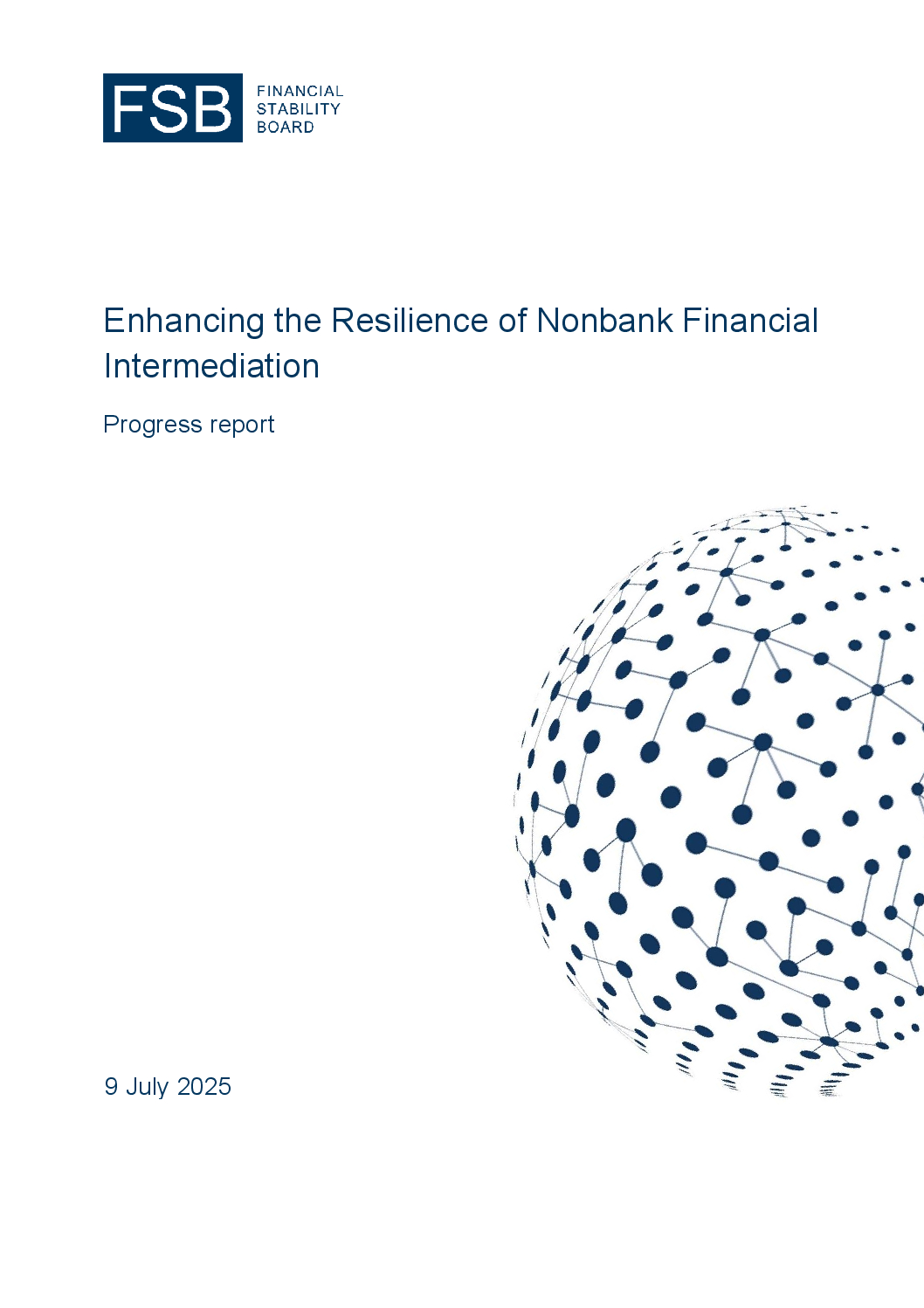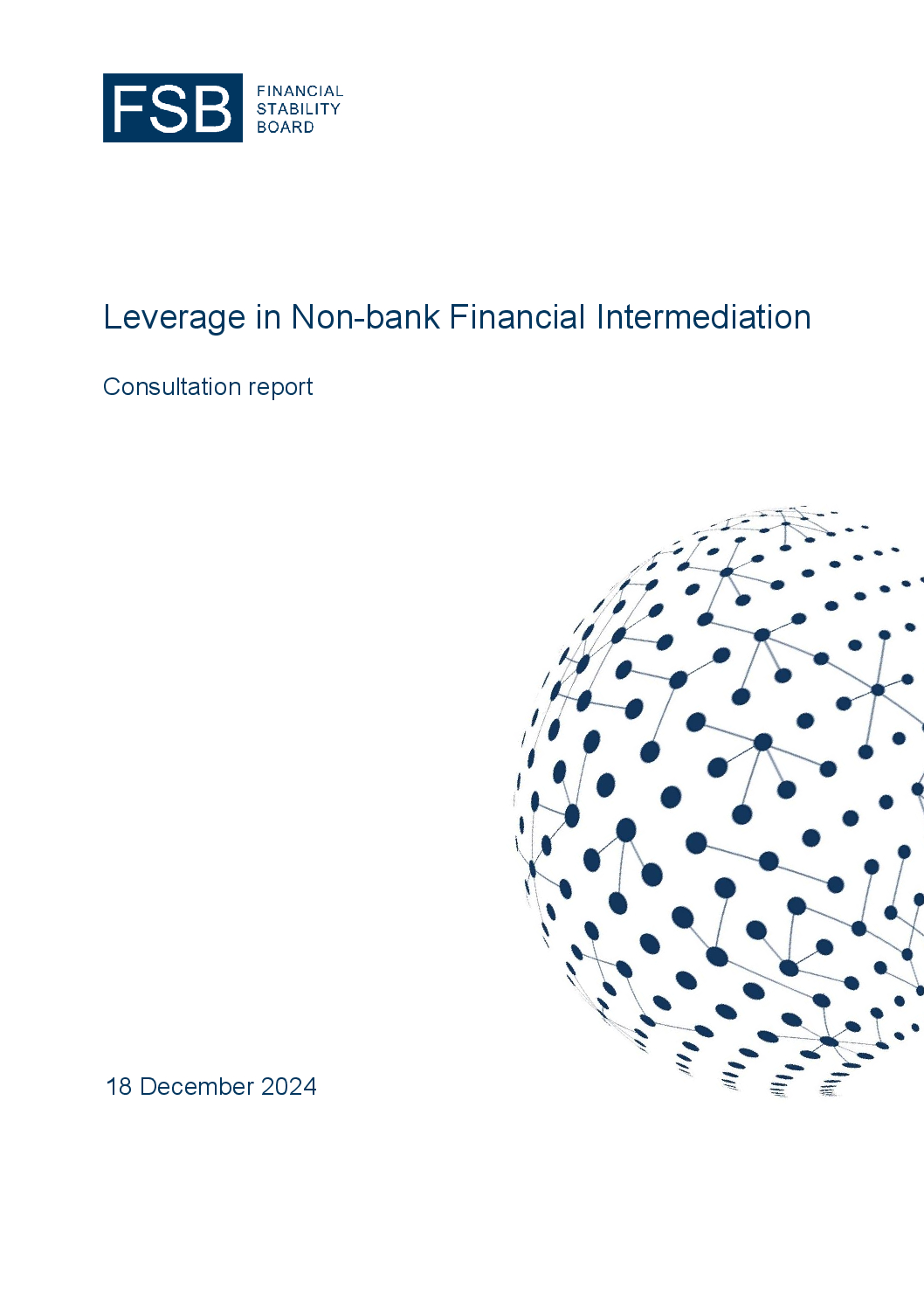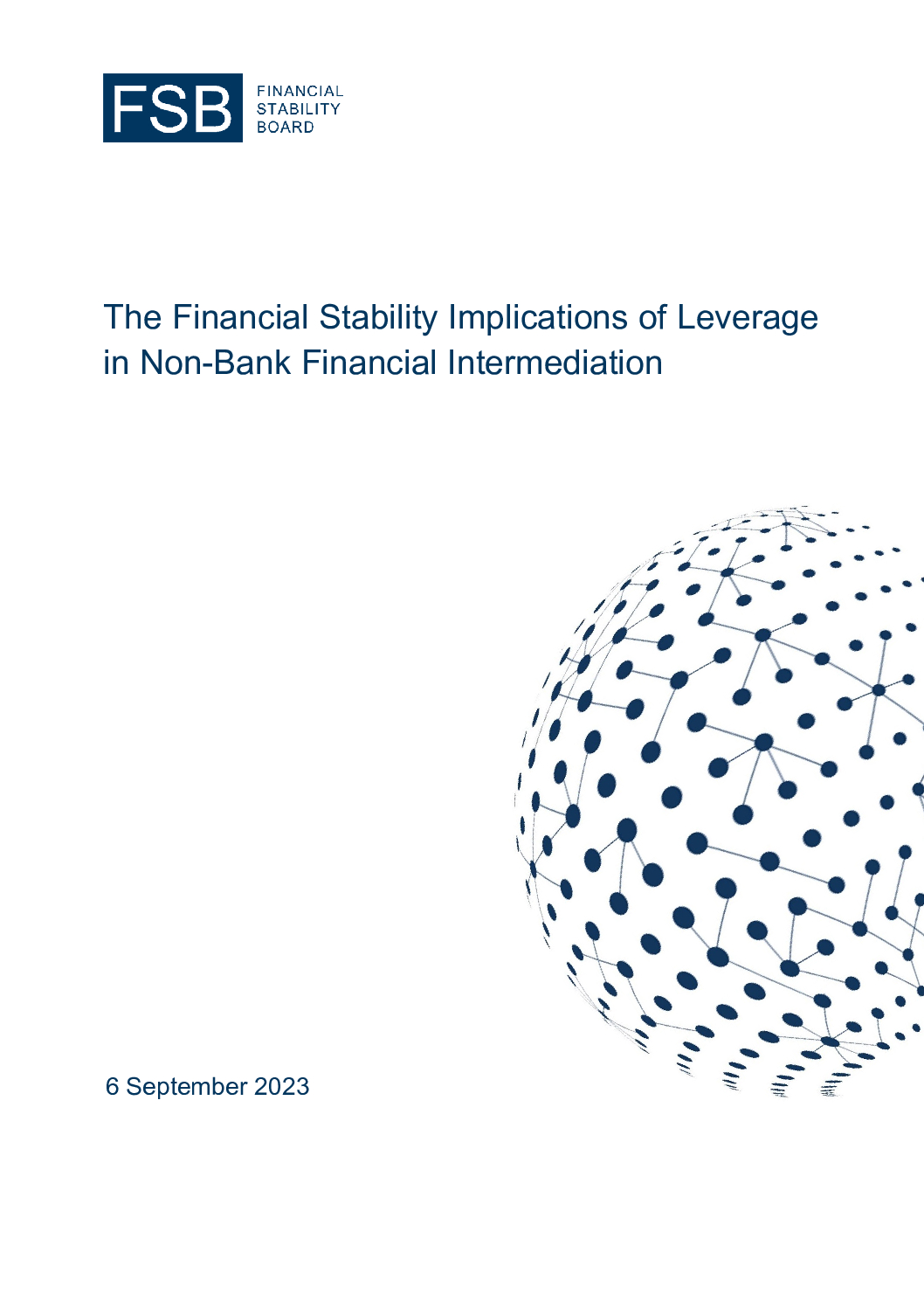Summary of document history
Leverage in NBFI can be an important amplifier of stress. If not properly managed, it can create risks to financial stability.
This report addresses financial stability risks created by nonbank financial intermediation (NBFI) leverage, focusing on two key areas:
- risks that may arise in financial markets that are critical to the functioning of the financial system and the real economy;
- risks that may arise through interlinkages between leveraged nonbanks and systemically important financial institutions that act as leverage providers.
Building on the policy steps already taken by authorities and the work done by the standard-setting bodies (SSBs), the report sets out an integrated approach for addressing NBFI leverage risks. Authorities are recommended to:
- have a domestic framework in place to identify and monitor financial stability risks created by NBFI leverage in an effective, frequent, timely and proportionate manner;
- select, design and calibrate policy measures, or combinations of measures, that address the financial stability risks identified in a flexible, targeted and proportionate way.
The recommendations reflect public feedback received on a consultative version of the report, which the FSB published in December 2024. They are structured around the following areas:
- risk identification and monitoring (Recommendations 1-3);
- addressing NBFI leverage in core financial markets (Recommendations 4-5);
- counterparty credit risk management (Recommendations 6-7);
- addressing incongruencies in regulatory treatment (Recommendation 8);
- cross-border cooperation (Recommendation 9)
The report concludes with a set of general principles to help guide authorities in selecting, designing, and calibrating policy measures.
International cooperation on the implementation of the policy measures is critical to mitigate cross-border spillovers and avoid regulatory arbitrage. The FSB and SSBs will undertake further work to support and assist authorities in applying the recommendations.
FSB Recommendations to address the financial stability risks from leverage in NBFI
The FSB recommendations set out an integrated approach, according to which authorities should identify financial stability risks created by NBFI leverage and have appropriate policy measures in place to address the risks that they identify.
Recommendations relate to risk identification and monitoring. Authorities should:
- Have a domestic framework to identify and monitor in an effective, frequent, timely, and proportionate manner, the financial stability risks created by NBFI leverage.
- Assess and seek to address data challenges in their domestic risk identification and monitoring framework, and collaborate, where appropriate, with foreign authorities to reduce those challenges that may hinder effective cross-border risk identification and monitoring, including by promoting better data and information sharing.
- Review the granularity, frequency, and timeliness of existing public disclosures and determine the degree to which additional or enhanced disclosures should be provided to the public.
Recommendations relate to NBFI leverage in core financial markets. Authorities should:
- Take steps to address the financial stability risks created by NBFI leverage that they identify in their core financial markets.
- Consider those measures that are most appropriate to address the risks that they identify, including both activity- and entity-based measures, as well as concentration-related measures. In doing so, authorities should conduct appropriate analysis when selecting, designing and calibrating policy measures, to mitigate any unintended consequences.
Recommendations relate to counterparty credit risk management. Authorities should:
- Ensure the timely and thorough implementation of the BCBS’s guidelines on counterparty credit risk for bank leverage providers, which represent an important element of a comprehensive policy response to financial stability risks created by NBFI leverage.
- Review the adequacy of existing counterparty disclosure practices made privately between leveraged nonbanks and leverage providers and consider developing, in partnership with industry, mechanisms, standards and/or guidelines to enhance the effectiveness of these disclosure practices.
In instances where various forms of NBFI leverage provision are subject to incongruent regulatory treatments which may result in regulatory arbitrage that can increase financial stability risks. Authorities should:
- determine whether and how to address the identified incongruences, having regard to the treatment of similar situations in other jurisdictions.
The last recommendation emphasises the importance of cross-border cooperation. Authorities should:
- engage proactively with their peers to facilitate coordinated crisis and/or policy responses, to the extent legally and operationally feasible.


